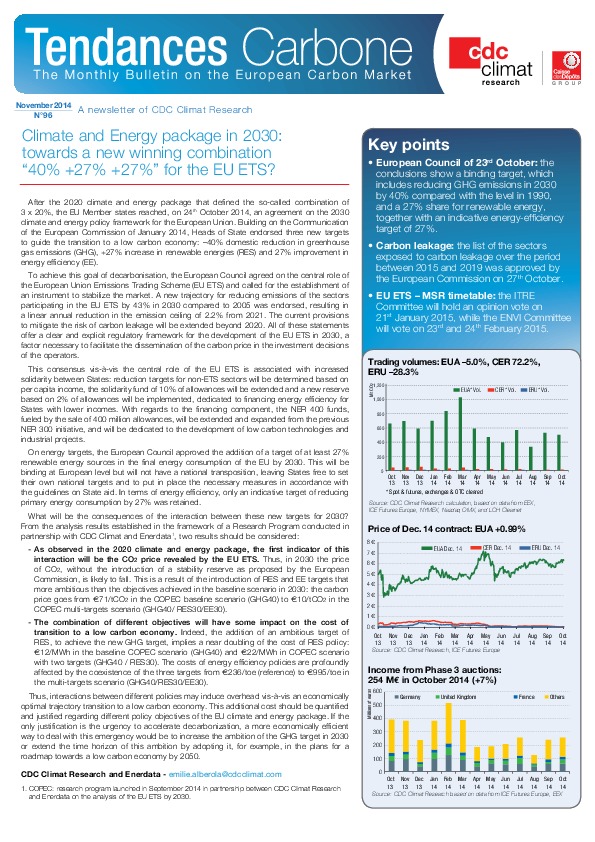Climate and Energy package in 2030: towards a new winning combination “40% +27% +27%” for the EU ETS?
By CDC Climat Research and Enerdata
European Council of 23rd October: the conclusions show a binding target, which includes reducing GHG emissions in 2030 by 40% compared with the level in 1990, and a 27% share for renewable energy, together with an indicative energy-efficiency target of 27%.
Carbon leakage: the list of the sectors exposed to carbon leakage over the period between 2015 and 2019 was approved by the European Commission on 27th October.
EU ETS – MSR timetable: the ITRE Committee will hold an opinion vote on 21st January 2015, while the ENVI Committee will vote on 23rd and 24th February 2015.
